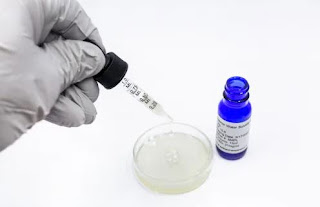Is THCV a psychoactive compound?
What exactly is THCV?
THCV Isolate, or tetrahydrocannabivarin, is one of over 80 cannabinoids found in the Cannabis sativa species, along with CBD, THC, and numerous other biologically active molecules. Although THCV is typically found in very low concentrations when compared to CBD or THC, some hemp and cannabis varieties contain high concentrations of THCV, and it is rapidly gaining attention for its unique interactions with other cannabinoids. One of the most pressing questions about THCV Isolate Wholesale is whether it has the same psychoactive effects as the well-known THC.
Almost no human studies have been conducted to determine whether or not this is true. This makes it difficult to draw conclusions, but here is a summary of what scientists have learned about THCV Isolate Wholesale.
Is there a psychoactive effect of THCV?
The compounds THCV and THC (tetrahydrocannabivarin and tetrahydrocannabinol) are similar. The similarities can be seen in the molecular structures of the two compounds, which only differ from one another by the longer carbon chain found on THC, but this small difference results in significant differences in how the compound interacts with cells. Researchers at the University of Oxford were among the first to discover THCV Isolate Wholesale in a cannabis extract in 1970. In the same paper, they reported that THCV was nearly five times less active than THC in a mouse experiment.
In 1974, six people were given 7 mg intravenous doses of THCV to determine its similarity to THC in a study on the relationship between structure and activity in cannabinoids. One of the six reported no effect, while the other five reported mild THC-like effects. The study concluded that the potency was approximately 25% that of THC. This study was carried out without the use of a control group, and the sample size is small, but it is one of only a few studies looking into the effects of THCV Isolate Wholesale in humans.
In 2005, a paper published in the British Journal of Pharmacology investigated how THCV interacts with Cannabinoid Receptors, CB1 and CB2, in brain tissue and hamster ovary cells. CB1 and CB2 Receptors are found in cell membranes throughout the body and are part of the endocannabinoid system; for more information, see our previous blog entry. THC is known for binding to CB1 receptors, which are abundant in the brain and produce psychoactive effects. The researchers discovered that THCV Isolate Wholesale can act as a CB1 and CB2 receptor antagonist, preventing THC and other cannabinoids from binding by competing for the receptor. THC loses its ability to affect body chemistry when it is unable to bind to cell receptors.
A 2007 study expanded on these findings, determining that while low doses of THCV do antagonize CB1 and CB2 receptors and block some of THC's psychoactive effects. This means that at high doses, THCV Isolate Wholesale activated the receptor in the same way that THC does, resulting in psychoactive effects in mice. However, because this study was conducted on mice using a synthetic analog of THCV rather than naturally extracted THCV, it is difficult to extrapolate the findings to humans. There have been no recent human studies on THCV's psychoactive effects.
In 2016, a study on the antagonistic effects of THCV Isolate Wholesale on THC in human subjects was published. Ten male cannabis users were given 10 mg THCV or a placebo orally for five days. They were all given 1 mg of THC intravenously on the fifth day, and the level of psychoactivity was compared between the THCV and placebo groups. There was no discernible difference between the THCV and the placebo, indicating that a 10 mg oral dose is insufficient to produce psychoactivity. In the THCV Isolate Wholesale group, there was a significant decrease in delayed verbal recall, an increase in memory intrusions, and reports of feeling less euphoric.
Summary
THCV Isolate Wholesale is psychoactive in humans, but not in the same way that THC is. THCV is approximately 4-5 times less potent than THC at high doses, but produces similar effects. Low doses of THCV, on the other hand, have the opposite effect, blocking THC action at CB1 receptors and decreasing psychoactivity. Cannabis strains with high THCV concentrations are becoming more popular as a result of their diverse effects. Detailed research on the psychoactivity of THCV in humans has never been done, despite the fact that it is clearly required. It is difficult to determine what the psychoactive effects of THCV are and how they interact with THC in the human body until more studies are completed.




Comments
Post a Comment